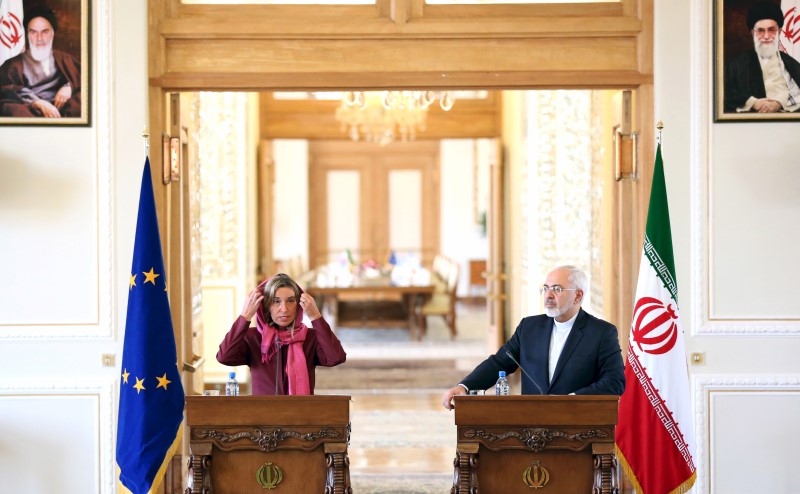By Robin Emmott
BRUSSELS (Reuters) - The European Union extended on Thursday its suspension of economic sanctions against Iran for two weeks, a technical measure to give time for the implementation of a nuclear deal between Tehran and world powers that officials say is imminent.
The suspension of some sanctions on Iran, which were due to expire six months after the historic July 14 deal with Iran, will now run until Jan. 28, although diplomats expect all sanctions to be lifted definitely sooner.
The European Council representing EU governments in Brussels said in a statement that its decision to fully lift economic sanctions on Iran would come as soon the International Atomic Energy Agency agreed that Iran has taken the necessary steps.
There is no date set yet for "implementation day" of the so-called Joint Comprehensive Plan of Action agreed on July 14.
The European Union has already formally enacted the legislative framework for lifting all nuclear-related economic and financial sanctions on Iran by publishing the documents on its official website.
"Everything is ready for the lifting of sanctions once Iran is judged to have met its obligations under the deal," said an EU diplomat involved in sanctions work who declined to be named.
The European Union suspended a limited number of economic sanctions against Iran following the July nuclear deal.
U.S. Secretary of State John Kerry said last week he believed implementation of the deal was coming soon, while EU foreign policy chief Federica Mogherini said in Prague on Monday: "my expectations are that this day could come rather soon and that the implementation of the agreement is proceeding well, it's encouraging."
The International Atomic Energy Agency's approval would mean closing its 12-year investigation of Tehran's past activities while ensuring it can still check for signs of suspicious behaviour.
For sanctions on Iran to be lifted, the IAEA must first verify that the Islamic Republic has honoured all its commitments under the July deal, including dismantling large numbers of its centrifuges for uranium enrichment and filling parts of its Arak nuclear site with cement.

Also under the deal, Iran must scale back its stockpile of low-enriched uranium - which it plans to do via a swap for non-enriched forms of uranium with Russia, to remove concerns it could be put to developing nuclear bombs.